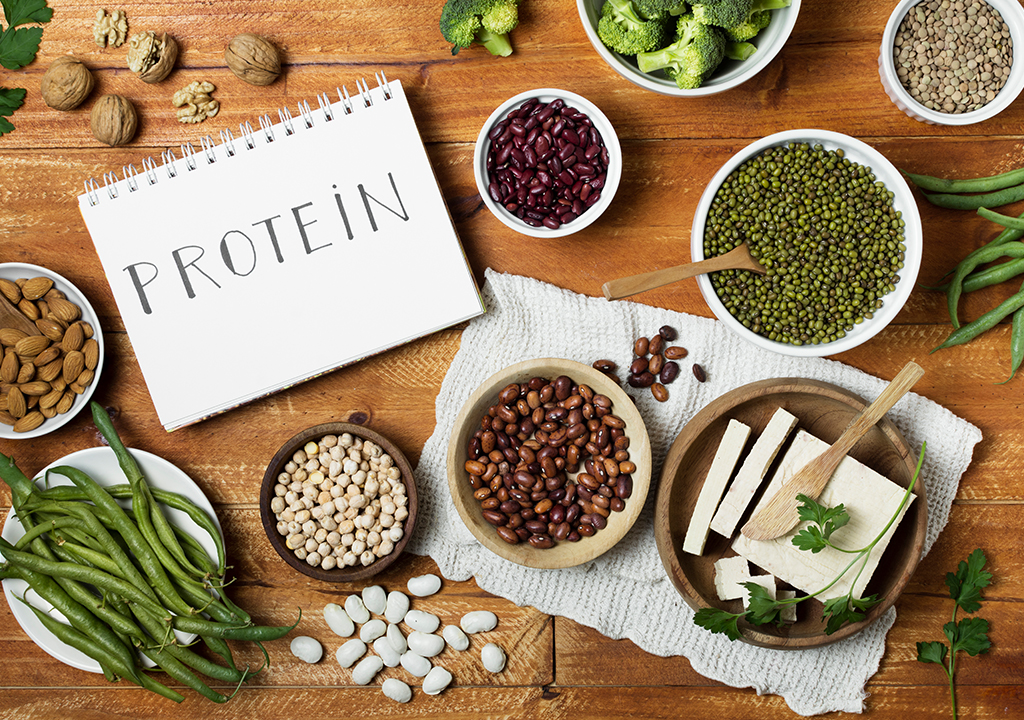Introduction: Powering Up with Plant-Based Proteins
In a country where vegetarianism is not just a dietary choice but a way of life, ensuring adequate protein intake can sometimes be challenging. However, with a rich culinary heritage and a plethora of natural sources, vegetarians in India can easily meet their protein needs without relying on meat or dairy. From the kitchens of Punjab to the thalis of South India, let’s explore the best plant-based protein sources that can help you power up your diet and stay healthy.
The Importance of Protein: Fueling Your Body
Protein is essential for building and repairing tissues, making enzymes and hormones, and maintaining healthy bones, muscles, and skin. For vegetarians, getting enough protein means diversifying their diet to include a variety of plant-based sources. Here are some of the top plant-based protein powerhouses that are both nutritious and delicious.
1. Lentils (Dals): The Protein-Rich Staple
Lentils, or dals, are a cornerstone of Indian cuisine and a fantastic source of plant-based protein. Whether it’s the humble moong dal or the robust masoor dal, these legumes are packed with protein and essential nutrients.
Why Lentils?
- Protein Content: Approximately 18 grams of protein per cup.
- Nutritional Benefits: Rich in fiber, iron, and folate, which are crucial for overall health.
- Versatility: Can be used in soups, stews, salads, and even as a base for savory pancakes like dosas.
2. Chickpeas (Chana): The Versatile Legume
Chickpeas, or chana, are incredibly versatile and can be incorporated into a variety of dishes. From the hearty chole to the light and refreshing chickpea salad, this legume is a protein powerhouse.
Why Chickpeas?
- Protein Content: About 15 grams of protein per cup.
- Nutritional Benefits: High in fiber, manganese, and folate.
- Versatility: Can be used in curries, salads, and snacks like roasted chickpeas.
3. Quinoa: The Complete Protein Grain
Quinoa, though not traditionally Indian, has found a place in the Indian vegetarian diet due to its high protein content and versatility.
Why Quinoa?
- Protein Content: Contains all nine essential amino acids, with about 8 grams of protein per cup.
- Nutritional Benefits: Rich in magnesium, iron, fiber, and antioxidants.
- Versatility: Can be used in place of rice, in salads, or as a breakfast porridge.
4. Tofu and Tempeh: The Soy-Based Stars
Tofu and tempeh, both made from soybeans, are excellent sources of plant-based protein. They are incredibly versatile and can absorb the flavors of the dishes they are cooked in.
Why Tofu and Tempeh?
- Protein Content: Tofu has about 10 grams of protein per half-cup, while tempeh boasts about 15 grams.
- Nutritional Benefits: High in calcium, iron, and contains beneficial probiotics (especially tempeh).
- Versatility: Can be used in stir-fries, curries, and even grilled as a meat substitute.
5. Nuts and Seeds: The Protein-Packed Snacks
Nuts and seeds are not only great sources of protein but also provide healthy fats, vitamins, and minerals. Almonds, chia seeds, flaxseeds, and pumpkin seeds are particularly high in protein.
Why Nuts and Seeds?
- Protein Content: Varies, but typically about 6-8 grams of protein per ounce.
- Nutritional Benefits: Rich in omega-3 fatty acids, fiber, and antioxidants.
- Versatility: Can be added to smoothies, salads, or eaten as a snack.
6. Paneer: The Indian Cheese
Paneer, or cottage cheese, is a popular vegetarian source of protein in India. It’s versatile and can be used in a variety of dishes from savory curries to grilled kababs.
Why Paneer?
- Protein Content: About 14 grams of protein per half-cup.
- Nutritional Benefits: High in calcium and phosphorus, which are important for bone health.
- Versatility: Can be used in curries, grilled dishes, and even desserts.
7. Spirulina: The Superfood Algae
Spirulina is a type of blue-green algae that is often touted as a superfood due to its impressive nutrient profile.
Why Spirulina?
- Protein Content: About 4 grams of protein per tablespoon.
- Nutritional Benefits: Rich in B vitamins, iron, and antioxidants.
- Versatility: Can be added to smoothies, juices, or even sprinkled on salads.
Take away
Ensuring adequate protein intake as a vegetarian in India is not only possible but also delicious and varied. By incorporating these plant-based protein sources into your diet, you can enjoy a balanced and nutritious meal plan that supports your overall health. So, next time you’re planning your meals, remember these protein-packed foods and embrace the power of plant-based proteins. Your body will thank you!


